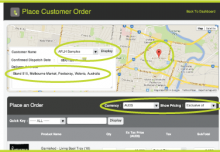With the business world undergoing exponential changes driven by technological advances, globalisation and other forces, the way we do business is changing forever, and the world of logistics and supply chain management is no exception.
Surprisingly, many companies (large and small) have neglected to update their supply chain management processes to capitalise on the emerging technologies and prevailing trends currently revolutionising supply chains around the world.
Whether businesses are choosing not to change through neglect, organisational reluctance to change or merely not knowing how to implement new systems, many businesses are missing out on the benefits that come with upgrading supply chain management systems.
If you asked a manager, CEO or business owner if they wanted to save money, save time, boost productivity and make their business more streamlined and sustainable, most (if not all) would be interested in hearing more. Well, all the above benefits (and more) can come from moving with the times and upgrading your supply chain to bring it into line with the technology that’s available.
Companies that are still doing things like using paper, hand-written order forms to pack orders and generating reports manually using excel spread sheets are missing out on the key, tangible benefits that come from integrating the game-changing, supply chain management influences many other businesses have already introduced.
Two driving factors have changed supply chain management forever and you’d probably be surprised to learn that you’ve no doubt already encountered them in your personal or professional life:
The advent of cloud computing
Cloud computing has changed the world in a multitude of ways, but none more so than for small to medium businesses. One of the key benefits of cloud computing for SMEs lies in the avoidance of hefty set up and maintenance costs that come with buying and maintaining a server. Another payback of cloud computing is the ability for SMEs to monitor their supply chain from anywhere in the world.
This empowers managers and owners to check in from anywhere, as the data held within the cloud is current and accessible from anywhere with an internet connection. This allows managers to keep track of orders and predict trends from their tablet while waiting at the airport or their laptop while visiting a supplier. When compared with the old way of accessing up to date data, cloud computing easily wins with its convenience, efficiency and ease of use.
The wide scale adoption of tablets in business
Once considered an unnecessary luxury item or fun ‘add on’ to a laptop or PC, tablets are now being utilised by many businesses in many different ways. From serving as interactive menus in restaurants and cafes to order points in stores, easy-to-use tablets are doing everything for businesses from streamlining customer service to improving desk jobs.
The world of supply chain management has benefited strongly from the adoption of tablets, with warehouse staff able to pack and manage orders in a more responsive, holistic way using real-time data.
Having access to real-time data and make corrections and changes ‘on the fly’ means increased productivity and reduction of costly errors – worthy benefits for any company.
0 Comments
Leave a reply
You must be logged in to post a comment.




